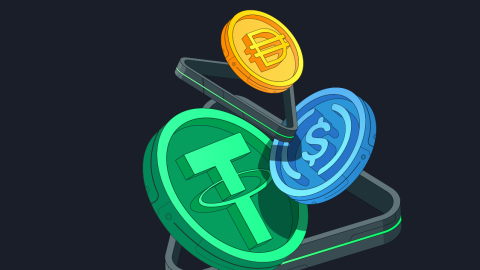
Similar Posts

Exploring the Future of Finance: The Powerful Fusion of Traditional Finance (TradFi) and Decentralized Finance (DeFi)
The convergence of traditional finance (TradFi) and decentralized finance (DeFi) is reshaping the financial landscape, driven by blockchain innovations. Initially operating separately, both sectors now engage in collaborations, such as Project Mariana for cross-border payments and the emergence of stablecoins. Traditional finance players, like BlackRock, are actively participating in blockchain developments, including Bitcoin ETFs and tokenized funds. As regulatory frameworks tighten, DeFi protocols are exploring formal registration to meet compliance standards. This evolving ecosystem is integrating blockchain into various financial institutions, making cryptocurrencies and tokenized assets mainstream while requiring leaders to adapt to new technologies and regulations.

Robinhood Expands Horizons: Acquires Canadian Crypto Innovator WonderFi
Robinhood’s acquisition of WonderFi marks a pivotal development in Canada’s cryptocurrency scene, combining over C$2.1 billion in assets. This partnership aims to strengthen Robinhood’s foothold in a rapidly growing market. With a strong Canadian presence since 2024, Robinhood seeks to leverage WonderFi’s diverse offerings for both novice and seasoned users. The acquisition involves purchasing WonderFi shares at C$0.36, a 41% premium over its recent closing price, and is expected to close in the second half of the year. This collaboration is projected to enhance services and attract more investors in the Canadian crypto market.

How Specialized Blockchains are Revolutionizing the Future of DeFi
Specialized blockchains are transforming decentralized finance (DeFi) by providing tailored solutions for distinct financial applications. New platforms like Berachain and Unichain challenge the idea that general-purpose blockchains can serve all needs, offering optimized environments for high-speed trading, tokenized assets, and compliance. While advocating specialization highlights benefits like enhanced security and scalability, concerns about fragmentation and liquidity dilution persist. However, the rise of venture funding reflects growing institutional interest in these networks, which support innovative applications. As specialized blockchains evolve, the future of DeFi appears to be modular and collaborative, moving away from reliance on singular systems.

Leading US Banks Explore Collaborative Stablecoin Initiative
Major banking institutions are exploring stablecoin regulations, with discussions surrounding the integration of payment platforms like The Clearing House and Zelle. There’s a push to expand stablecoin models to include more banks, aligning with U.S. regulatory efforts, particularly the Senate’s GENIUS Act aimed at establishing clear guidelines for stablecoin usage. Additionally, Circle has launched a stablecoin-based Global Payment Network, potentially competing with traditional systems like Swift, in collaboration with banks such as Deutsche Bank and Santander. As stablecoin discussions progress, their impact on the financial landscape remains to be seen.

BitGo Achieves Milestone: Secures EU Crypto Custody License for Enhanced Digital Asset Protection
BitGo has secured a MiCA license from Germany’s BaFin, marking a significant advancement in its digital asset services across the EU. The company established its EU subsidiary in Frankfurt in 2023 and has since registered its services in Italy, Spain, Poland, and Greece. The MiCA directive, introduced in 2024, aims to regulate the evolving cryptocurrency market, with all crypto firms required to comply by June 2026. Harald Patt, managing director of BitGo Europe GmbH, emphasized the company’s commitment to regulatory compliance, security, and the growth of crypto adoption in Europe, underscoring the importance of this new license.

